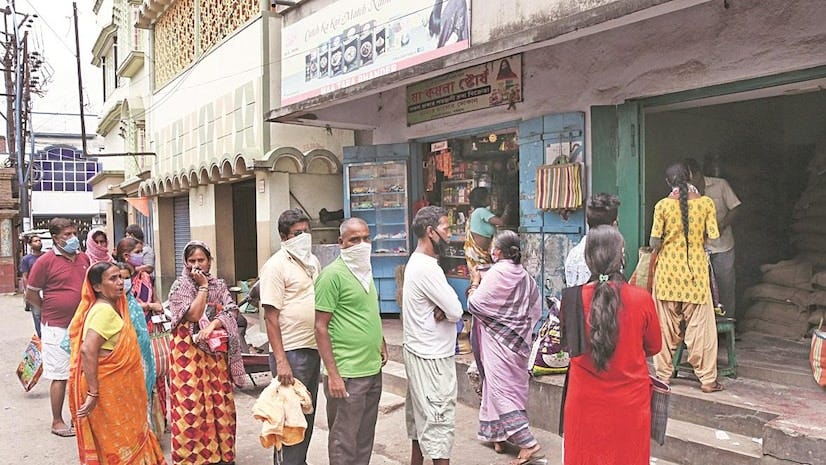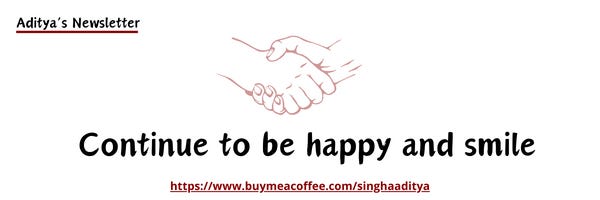The Cost of Being 4th | Aditya's Newsletter
India Rises to 4th Largest Economy, but Sabeer Bhatia Raises a Stark Warning on Inequality
The Economic Talks | Aditya’s Newsletter
Published: June 2025
India recently surpassed Japan to become the world’s fourth-largest economy by nominal GDP, a milestone that drew widespread celebration across political, media, and public domains. However, the congratulatory mood was disrupted when Sabeer Bhatia, co-founder of Hotmail and a prominent Indian entrepreneur, sharply criticized the country's obsession with economic rankings in a viral post on X (formerly Twitter).
“Instead of hanging your head in shame that 415 million people in India survive on $3.10/day, you brag about being the world’s 4th largest economy. Shame on you,” Bhatia wrote.
The remark triggered a digital firestorm. Thousands weighed in — many applauded his candour, but a far larger segment responded with vitriol and personal attacks, accusing him of being out of touch, unpatriotic, or simply irrelevant.

Economic Growth vs Human Development: A Widening Chasm
While India’s GDP now exceeds $4.1 trillion, its per capita income remains below $2,800, placing it well behind other major economies. More critically, inequality remains endemic. According to a 2023 Oxfam report, the top 10% of Indians control over 77% of national wealth, while a significant proportion of the population struggles to meet basic daily needs.
“We overtook Japan in GDP... but can you feel it in your pocket?” Bhatia asked in a follow-up video, where he reiterated his concerns about distributional failure and economic injustice.
India ranks 132nd on the Human Development Index (HDI), a composite measure that includes education, health, and income. Despite high-profile advancements in space exploration, digital public infrastructure, and unicorn startups, these benefits have not trickled down equitably, particularly in rural India and low-income urban zones.
Bhatia’s Prescription: Mass Education via Artificial Intelligence
In contrast to his critics, Bhatia offered a constructive solution — leveraging AI to mass-educate the country’s bottom 500 million. He emphasized that the goal should be to equip citizens with critical thinking, not just basic literacy or skill training.
“With today’s technology, it is entirely possible to educate millions with quality content. AI has the potential to close India’s learning gap faster than any traditional model,” Bhatia stated.
His remarks come at a time when the Indian government itself is experimenting with AI in public services, including healthcare diagnostics and personalized learning. However, access remains skewed, with digital penetration high in urban areas but lagging in low-income and tribal regions.
Nationalism, Narrative & the Danger of Digital Denial
The backlash to Bhatia’s statement revealed an unsettling pattern — rising online hyper-nationalism that conflates criticism with betrayal. Instead of debating facts, many responses focused on his past, his location abroad, and his silence on other national issues.
“Another personal attack. When losers like you don’t know how to counter my thinking, you resort to personal abuse,” Bhatia responded to one such user.
This kind of reaction, experts warn, reflects a growing resistance to introspection. Celebrating GDP growth while ignoring ground-level deprivation creates a distorted narrative, one that risks leaving behind millions in India's development story.
The Broader Context
India may have overtaken Japan in nominal GDP, but the gap in quality of life remains wide. With a per capita income of just $2,800 compared to Japan’s $34,000, and an HDI rank of 132 versus 19, India’s growth hasn’t translated into broad human development. Nearly 29% of its population still lives under $3.20/day, and its education quality ranks in the bottom quartile globally.
The disparity is clear: India has the economic size, but not yet the developmental depth. This paradox lies at the heart of Bhatia’s critique — and it is a conversation worth having, beyond headlines and hashtags.
A Nation’s Pride Should Be Measured by Progress for All
Sabeer Bhatia’s remarks may be jarring, but they highlight an uncomfortable truth: GDP is a number, not a measure of dignity, health, or opportunity. If nearly one-third of Indians still live in borderline poverty, then national celebration must be tempered with reflection — and urgent course correction.
India’s economic rise is real. But without inclusive growth, mass education, and a national appetite for self-critique, that rise risks becoming hollow.
In Bhatia’s words: “Growth without distribution is just inflation in disguise.”
The question isn’t whether India has achieved something monumental — it has. The real question is whether this achievement means anything to the 415 million Indians surviving on ₹265 a day.





